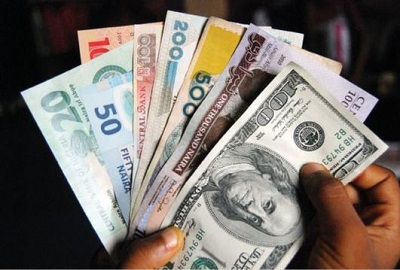Economy
Naira is Worst Performing Currency in Africa in 2016 (Read Details)
As the economic recession continues, the naira has continued its abysmally as it is now the worst performing currency in Africa.
SOMETIMES the worst is not bad enough. Or such is the case for Nigeria’s currency, which nosedived by 30% when the central bank first removed its peg to the dollar on June 20th. The naira is now this year’s poorest-performing currency in Africa. Internationally, only the currencies of Venezuela and tiny Suriname have fared worse. Yet were it truly free, it would be weaker still.
In fact, the naira’s free float seems to have lasted exactly a day. Since its sharp drop on the first day of its devaluation, the currency has more or less flatlined at about 282 per dollar (see chart). This is rather odd given the pent-up demand for dollars after the central bank governor, Godwin Emefiele, restricted the supply in a bid to defend the currency at its old peg of 199 to the dollar. Many analysts expected it to plummet as low as 350 when businesses hoovered up a backlog exceeding $4 billion.
Bankers say this stability came about after the central bank sold dollars and traders were bullied by it to keep to an unofficial peg. “If you want to sell or buy higher than the managed peg, life will be made difficult,” says the former CEO of a bank.
So why did the central bank ignore its own policy on allowing a float? The most plausible explanation is that Mr Emefiele has been kowtowing to President Muhammadu Buhari, who fears a weak currency. But these sorts of flip-flops hardly reassure foreign investors, whose dollars Nigeria desperately needs to fill a gaping trade deficit. Nor do they encourage Nigerian exporters to repatriate foreign exchange, since they still expect a further fall in the value of the local currency.
Starved of an inflow of fresh dollars, the new interbank market on which the naira trades has been painfully thin: little more than $50m in foreign exchange changes hands there daily, according to Renaissance Capital, an investment bank. (By contrast foreign exchange flows in South Africa are worth billions of dollars a day.) It reckons that about 90% of Nigeria’s flow comes from the central bank, which should be stepping away from the market. Its reserves have fallen to $26.3 billion: barely enough for six months’ imports.
Yet there is reason for hope. By happy coincidence, the naira began to slide again in mid-July after the governor took an ear-bashing from foreign investors over his manipulation of the exchange rate (which he denies). By the time The Economist went to press it had reached 295 to the dollar, its lowest ever official rate. This is still about 20% stronger than on the black market—which is surely a more accurate representation of the naira’s worth.
The central bank’s policy of defending the naira has been disastrous, creating shortages of products such as milk and fuel and bringing factories to a standstill for want of imported inputs. The economy contracted by 0.4% in the first quarter of this year thanks to cheap oil and monetary mismanagement. The IMF expects GDP to shrink 1.8% this year.
Worse still, inflation hit 16.5% in June—the highest rate in almost 11 years. With a weaker currency, it might surpass 20% by Christmas, calculates Chris Becker of Investec, a South African bank. Whatever happens, Nigerians will hurt more yet.
Follow us on social media:-

 Celebrity Gossip & Gist1 day ago
Celebrity Gossip & Gist1 day ago“The money wey dem pay me don expire” – Moment Burna Boy stops his performance at the Oando PLC end of the year party (Video)
-

 Economy1 day ago
Economy1 day agoGoods worth millions of naira destroyed as fire guts spare parts market in Ibadan
-

 Celebrity Gossip & Gist7 hours ago
Celebrity Gossip & Gist7 hours agoMoment stage collapses on Odumodublvck during concert performance (Video)
-

 Economy6 hours ago
Economy6 hours agoPresident Tinubu cancels Lagos engagements in honor of food stampede victims





